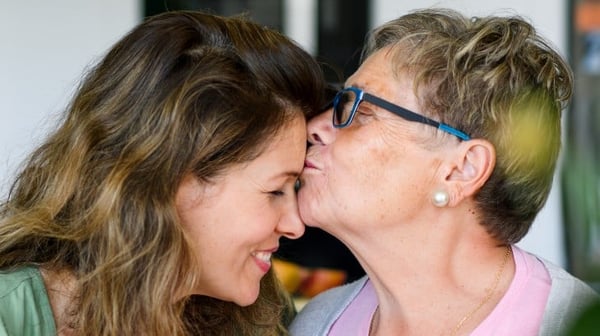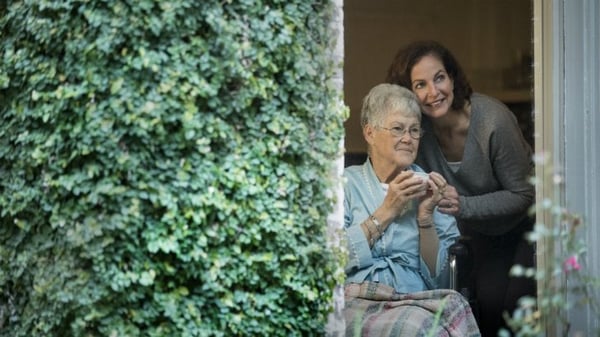
.
Making your own decisions about organ donation
20 September 2024
Have you spoken to your family about organ donation? Whether that be telling your loved ones about your own decision or educating the next generation about the choices they make, it’s important to have open and honest conversations. Each year, thousands of lives are improved and saved thanks to those who donate organs to patients on the transplant list.
You may also be interested in...

In line with Organ Donation Week (September 23rd to 29th 2024), Legal & General have partnered with the NHS to inspire family conversations and registrations for organ donation.
This year marks the 30th anniversary of the NHS Organ Donation Register. And as we celebrate this milestone, it’s just as important as ever that people feel confident that they can talk about their organ donation decisions.
During 2023/24, the consent rate for organ donation was 89% (when a patient had expressed an ‘opt in’ decision). However, 140 families overruled their loved one’s decision to be an organ donor. This underlines the importance of people feeling empowered to discuss their organ donation decisions with family members.
Whatever your own decision about organ donation, it’s vital that you talk to your loved ones so they can fully understand the decision and be certain about what you want.
So, what do you need to know about organ donation? How do you start a conversation about organ donation and debunk common myths about organ donation? And what do you need to do once you’ve made up your mind? Let’s take a look.
Family involvement

England, Wales and Scotland all now have an opt out system for organ donation. This means that all adults are now considered to be willing organ donors when they die, unless they have recorded a decision not to donate, or are in one of the excluded groups. However, families will still always be consulted before any organ donation goes ahead.
Therefore, it’s as important as ever to ensure your family know your organ donation decision. 9 out of ten families ultimately agree to support organ donation when they know it was what their loved one wanted.

Learning about donation
There are lots of opportunities to learn about organ donation at different stages in life. Blood, organ, and stem cell donation are now a statutory subject for Key Stage 3 and 4 in state secondary schools, as part of health education.
Additionally, when learner drivers apply for their driving license, they will be asked if they want to opt in for organ donation. So this is an important time for learners to understand the facts around donation and what their options are when it comes to donating organs.
We can all benefit from educating ourselves about organ donation and having open conversations with loved ones. That way, we can make our decisions about whether to donate organs with confidence.

Tips for having difficult conversations with your children
Legal & General partnered with Clinical Psychologist Dr Angharad Rudkin, to explore useful tips for having difficult conversations like this with your children:
- Age – how long a child can focus on a conversation changes with age. The basic rule of thumb is one minute per year of their life. This may seem very short but knowing this helps a parent focus the conversation and optimises their child’s chance of taking it all in. Age also affects how a child understands concepts of time and the finality of some things. With younger children especially, ask them what their understanding is before you begin so that you can tailor the way you give information.
- Technology – Children often look online to find out more or to verify information they’ve been told. While encouraging your child to come to you to chat, you can also direct them to trusted online sources.
- Language – the younger the child the simpler the language. Don’t assume your child knows what things mean. Instead ask them if they understand what an “organ” is, and what the word “donation” means.
- Use examples – children can struggle to understand abstract notions until they are quite a bit older, so use examples from your child’s life (either a personal experience or something from a book, TV, or a game) to illustrate what you are talking about.
- Honesty – Respond to questions openly and honestly and don’t be worried if you can’t answer a question. Let your child know you will find out and come back to them or let them know that you haven’t quite figured out the answer to that yet either. They will appreciate your honesty and will respond similarly.
- Timing – Choose a moment when children aren’t too tired and hungry and when you’re not taking them away from something they enjoy – whether it’s reading, gaming or playing outside. This means they are more amenable to listening.
- Sensitivity – Keep checking in with how they’re feeling. If a child is feeling very anxious, arrange with them a time when you will return to the topic, so that they know there is another opportunity to talk.
- Busy Families – Families are busier than ever, and it can be hard to find the time to talk about big, important topics such as organ donation. But it is a conversation worth having, not least because children learn as much from watching as they do from listening. Hearing you talk about it calmly and openly will teach them how to respond to this topic, opening up the gates to plenty more conversations about it in the future.
- New knowledge - Children of all ages are fascinated by novelty and surprise. Talking about organ donation may spark questions. Encourage all questions to help a child build up a better understanding of a complex topic.
- After the conversation – After the conversation move on to an activity together. This will ease the transition back to everyday life and reassure the child that life will now go on as usual.
Organ Donation Week 2024
This year, it’s the 30th birthday of the NHS Organ Donation Register, and local landmarks across the UK will be turning pink to raise awareness of the power of organ donations.
Pink is the colour of the organ donation card, so what better visual prompt than brightening up our local landmarks – from hospitals and council offices to schools and universities.
The more buildings lit pink – and people wearing pink – the more awareness will be raised for this life-saving gift.
More than 7,600 people need a life-saving transplant right now. Tragically, every day across the UK, someone loses their life waiting for an organ transplant. But your support for Organ Donation Week can help trigger conversations about organ donation – both online and offline. Two minutes now could save up to nine lives.
Register your decision
It’s important to encourage conversations around organ donation at home. By doing so, we can make sure family members are aware of each other’s wishes and decisions are registered with the NHS. Before the law changed, even though 80% of the public said they supported organ donation, only 38% had opted in, with the majority simply not having gotten around to registering. This may have resulted in numerous opportunities to donate being missed.
More than 30 million people in the UK have declared their decision through the NHS Organ Donor Register, and the vast majority (28.1 million) are opt-in registrations.
Although the new system has made great progress in increasing organ donations for those who are in need, it’s still as important as ever for you to record your decision on the NHS Organ Donor Register. You can also check, register, or update your decision via the NHS app.
Mandy’s story
There are countless stories of people who owe their lives to the generosity of organ donors. One such person is Mandy Whitworth from Durham.
Mandy was diagnosed with Type 1 diabetes when she was 11-years-old. In the years since, she struggled to manage her condition, and after becoming a parent, her kidneys began to fail and she was told she needed a transplant.
“I was devastated,” said Mandy. “I wondered if I’d live to see my two boys grow up.”
Mandy tried to find a live donor, but without success. Then in March 2016, she was put on the transplant list for a Simultaneous Pancreas Kidney transplant (SPK). After some false starts, Mandy waited patiently and tried to get on with her life. This wasn’t always easy, as her health meant she was sleeping up to 15 hours a day and missing out on much of her boys’ childhood.
But one day, her life changed.
“We were staying with my mum in Lincolnshire when I received a call from my transplant co-ordinator asking how soon I could get to Newcastle. We were packed and on our way in 30 minutes!
“I wasn’t told a great deal apart from that the donor was a 23-year-old – it’s all so easy to get excited to get the call but I also knew that someone, somewhere was grieving.
“I was in theatre for 10 hours and the next few weeks were far from easy, but my new kidney and pancreas were working beautifully and thankfully still are.”
On the one-year anniversary after Mandy received her transplant, she decided to write a letter to the family of the young man whose kidney and pancreas donation had saved her life.
“It was the hardest letter emotionally I’ve ever had to write, I did it from my heart. When writing the letter how do you say thank you? It doesn’t seem enough. To show how grateful I am is to make sure that I look after these precious gifts.”
The person who received that letter was Lozzie Jones, whose son Jordan gave Mandy a new lease of life.
Jordan was just 23, and a dad to a two-year-old son, when he fell off his bike at the skatepark and suffered a traumatic head injury.
“It was two in the morning when I was woken by my phone,” Lozzie explains. “It was my sister, she told me that Jordan had been in an accident.
“Darren, my oldest son, had to give me the devastating news that they couldn’t save my beautiful boy. As soon as I could I went to the hospital to be with my baby and instantly agreed to have Jord’s organs donated. I had been a donor for years and Jordan was so kind and caring, I know he would have wanted to help others. The following morning, I received a phone call to tell me that his organs had gone on to save five lives.
“Just over 12 months after his accident I received a letter off Mandy. I immediately wrote back, and we have been in regular contact since then. Three years to the day that my son gave Mandy life, we met up. It was so nice. I felt like I had known her forever. We have a unique bond that will never be broken. She is my family and I have so much love for her. I know Jordan was looking down on us with his big beaming smile.”
Other related articles

Coping with terminal illness

A guide to organ donation
